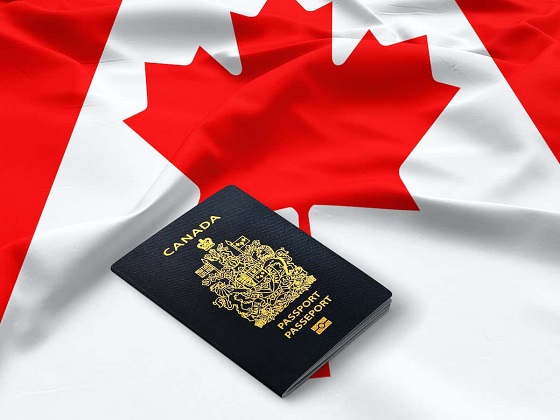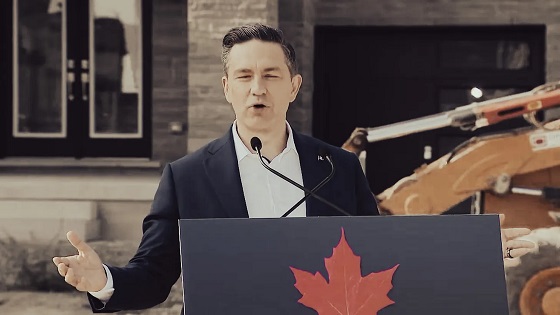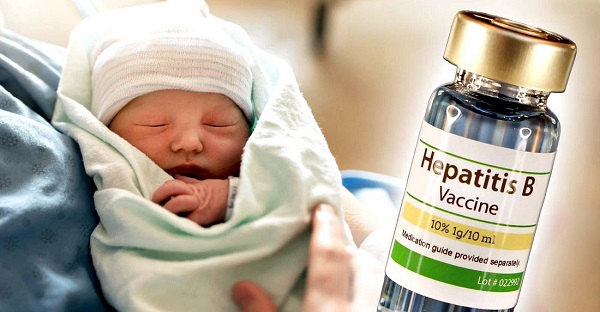Immigration
Canada must urgently fix flawed immigration security rules

The Macdonald Laurier Institute
By Sergio R. Karas for Inside Policy
As Canada faces increased threats of terrorist attacks, its lax, anachronistic immigration laws are putting all Canadians in jeopardy. Without urgent reforms to the Immigration and Refugee Protection Act (IRPA), Canada will face grave risks not just from terrorism but also espionage and subversion.
The critical need to tighten screening and secure the border comes as newly elected United States President Donald Trump threatens massive tariffs against Canada for failing to crackdown on the crisis earlier.
Section 34(1) of the IRPA sets out the inadmissibility criteria for individuals engaged in espionage, subversion, terrorism, being a danger to the security of Canada, engaging in acts of violence that would or might endanger the lives or safety of persons in Canada, or membership in an organization involved in such activities. This provision enables authorities to address potential threats to national security.
Canada faces several emerging security challenges, including terrorism, the rise of antisemitic violence, and Islamic radicalism. The trouble is, Section 34(1)’s overly broad definitions and inconsistencies in enforcement make it extremely challenging to address these rising threats.
Emerging threats to national security
Canada has long enjoyed a reputation for providing safe haven to refugees and other immigrants. However, the failure to properly screen newcomers – especially those from conflict zones – could exploit that weakness and allow radicals or terrorists to enter the country.
For instance, the federal government is currently accepting applications from Palestinians from Gaza to enter Canada. As of mid-January 2025, Immigration, Refugees, and Citizenship Canada has accepted 4,245 applications for processing under its temporary resident pathway for Palestinian extended family in Gaza; 733 people have been approved to come to Canada. Hamas’s control of Gaza and Canada’s limited ability to screen applicants pose heightened security risks. Since the October 7, 2023, Hamas terror attacks on Israel, Canada has been plagued by antisemitic violence and disruptive mass pro-Palestinian rallies. Meanwhile, polls indicate significant support for Hamas by Palestinians and its October 7 terrorist attacks. Although Canada has temporarily enhanced its screening protocols for Gazans, the risk of allowing Hamas terrorists or their supporters into Canada raises the risk of increased social tension and even antisemitic violence against Jewish Canadians.
Concerns about Canada’s porous border are not just hypothetical. Recently, authorities arrested a Pakistani national in Canada for allegedly planning an attack on the Jewish community in New York. Muhammad Shahzeb Khan, in Canada on a study permit, told an undercover law enforcement officer that “October 7 and October 11 were the best days to target Jews.”
Antisemitism has risen sharply in Canada since the October 7 attacks. The Canadian Security Intelligence Service (CSIS) warns that the Israel-Hamas war has led to a spike in “violent rhetoric” from “extremist actors” that could prompt some in Canada to turn to violence. According to the latest Global 100 survey conducted by the Anti-Defamation League (ADL), nearly half of people worldwide hold antisemitic views. The study found that 46 per cent of adults, an estimated 2.2 billion people, have strong antisemitic attitudes. This is more than double the level recorded in ADL’s first global survey a decade ago and the highest ever reported.
At the same time, Canada has long struggled in its efforts to identify and deport potential threats to national security. For example, in Mugesera v. Canada (Minister of Citizenship and Immigration), a former Rwandan politician accused of inciting violence against Tutsis during the Rwandan genocide, remained in Canada for over sixteen years before his deportation in 2012. His case highlights the extended timelines involved in the removal process. Former Immigration Minister Jason Kenney said that Mugesera’s case showed that Canada was too generous with suspected foreign war criminals. He also said, “At some point, it turns into a mockery of Canada’s generosity, eventually we have to remove war criminals and stop talking about it.”
In another case, Mahmoud Mohammad Issa Mohammad v. Canada, a convicted terrorist managed to drag out his deportation battle 26 years. Mohammad – a member of the Popular Front for the Liberation of Palestine (PFLP) convicted of taking part in a deadly attack on an Israeli plane at Athens airport in the 1960s – lied about his identity, his criminal past, as well as his ties to terrorist organizations. Kenney told reporters at the time “This case is almost a comedy of errors, with delays, with a system that was so bogged down in redundant process and endless appeals that it seemed to some that we would never be able to enforce the integrity of Canada’s immigration system and deport this terrorist killer.” Authorities cited Mohammad for misrepresentation on multiple grounds, yet he still managed to remain in Canada for decades. The threat of misrepresentation is a significant security concern. Thorough screening is crucial to ensure that those admitted do not pose security risks, given their possible affiliation with groups involved in violence or other activities that threaten national safety.
The recent arrest of multiple suspects on terrorism-related charges is a wake-up call for Canada, highlighting an urgent need to overhaul immigration screening processes to safeguard national security.
On July 31, 2024, the RCMP announced the arrests of Ahmed Eldidi and his son, Mostafa Eldidi, on multiple terrorism-related charges. Global News reported that the two men, originally Egyptian nationals, were allegedly involved in terrorist activity connected to the Islamic State of Iraq and Syria (ISIS). The article also revealed that in June 2015, the father allegedly took part in an ISIS propaganda video where he was seen dismembering a prisoner with a sword. On August 28, 2024, the Globe and Mail reported that the father, who became a Canadian citizen just two months before his arrest, had initially been denied a visitor visa in 2017. However, after supplying additional documents, he obtained a visitor visa in 2018 and became a permanent resident in 2021. The fact that Ahmed Eldidi was able to become a naturalized citizen, despite his violent ties to ISIS is bewildering.
Furthermore, according to Global News, Canadian Hezbollah members have taken part in several attacks overseas. They include a Vancouver man wanted for a bus bombing in Bulgaria that killed five Israeli tourists and a local driver, as well as a former Toronto grocer, Fawzi Ayub, who was a hijacker and member of Hezbollah’s Islamic Jihad unit. He was killed while fighting in Syria in 2014.
These arrests and the presence of such elements in Canada highlight the urgent need to revamp the system to prevent these security failures.
Reforming s. 34(1)
The Supreme Court of Canada in Mason v. Canada (Citizenship and Immigration) ruled that people can only be found inadmissible under section 34(1)(e) of the IRPA if they engaged in violent conduct linked to national security or the security of Canada. Since neither Mason nor his co-appellant were alleged to have engaged in acts of violence linked to national security or the security of Canada, section 34(1)(e) did not provide a basis for the inadmissibility of either person. This decision limits the ability of authorities to implement measures aimed at removing individuals from the country as it narrows the scope of grounds for inadmissibility.
Concerns about increasing Islamic radical activity in Canada have led the authorities to scrutinize events that may pose potential harm to the public. After Islamic radicals promoted a Hizb ut-Tahrir (HuT) Khilafah Conference 2025, authorities stated that “Reports of the upcoming conference, which was scheduled for January 18, 2025, in Hamilton, Ontario, were deeply concerning. Hizb ut-Tahrir has a documented history of glorifying violence and promoting antisemitism and extremist ideology.” The conference organizers ultimately cancelled the meeting, but critics are still calling for Hizb ut-Tahrir to be designated a terrorist entity under the Anti-Terrorism Act.
Narrowing legislative definitions and enhancing oversight could address security challenges. In Canada (Citizenship and Immigration) v. Harkat, which deals with inadmissibility on security grounds, the Supreme Court of Canada noted the lack of clear definitions for critical terms such as “terrorism,” “danger to the security of Canada,” and “member of an organization” in Section 34(1) of the Immigration Act.
Further, in Suresh v. Canada (Minister of Citizenship and Immigration), the Supreme Court of Canada provided a functional definition of “terrorism,” drawing from international conventions. However, membership in a terrorist organization remains difficult to define. This absence of precise language has created challenges in interpreting and applying the provisions fairly and consistently.
In Charkaoui v. Canada, the Supreme Court of Canada dealt with the constitutionality of security certificates, the court noted the tension that exists between rights and security. In this complex security landscape, the responsibility to protect both national security and individual rights remains a challenge.
The overly broad definitions and terms in this section have meant that the courts have been reluctant to apply it. To address these issues, Parliament should bring forward amendments to render terms like “terrorism” and “member of an organization” more concrete by tying them to specific acts, so the courts will not have to guess what was meant in the legislation.
An internal audit of the Immigration National Security Screening Program, covering the period between 2014 and 2019, revealed that out of the 7,141 cases that were flagged due to security concerns, including war crimes, espionage, and terrorism, 3,314 were approved for temporary, permanent, and refugee status. That is nearly half (46 per cent) of the foreign nationals flagged by security agencies who have been allowed to become permanent residents despite those concerns.
In order to improve the system, Canada should conduct stricter background checks incorporating international intelligence, increase the scrutiny of applicants, and impose restrictions on individuals with links to regions dominated by extremist groups or nations known to sponsor terrorism.
Canada should also consider implementing policies and legislative initiatives such as the No Visas for Anti-Semitic Students Act introduced in the U.S. Congress to combat university encampments and antisemitic harassment, which aim to revoke visas for international students of pro-terrorist protesters, enabling immigration officials to remove foreign students engaged in illegal activities.
The federal government should also amend Section 34(1) of the IRPA to provide more flexibility to visa officers and to CBSA Port of Entry officers to deny visas and entry to individuals where there are reasonable grounds to believe that they will engage in activities that will promote hate against an identifiable group, or whose rhetoric in public will be inflammatory. Further, authorities should also deny entry to individuals suspected directly or indirectly of ties to groups providing material support of terrorist organizations. The legislation must be updated so it can be used against modern-day public threats, and to ensure that the courts can rely on a clear legislative framework and policy to deal with judicial review of visa or entry denials.
Sergio R. Karas, principal of Karas Immigration Law Professional Corporation, is a certified specialist in Canadian Citizenship and Immigration Law by the Law Society of Ontario. He is co-chair of the ABA International Law Section Immigration and Naturalization Committee, past chair of the Ontario Bar Association Citizenship and Immigration Section, past chair of the International Bar Association Immigration and Nationality Committee, and a fellow of the American Bar Foundation. He can be reached at [email protected]. The author is grateful for the contribution to this article by Jhanvi Katariya, student-at-law.
Immigration
Conservatives blame Liberals for allowing man on UK child sex offender list to enter Canada

From LifeSiteNews
A Pakistani man was granted a visa in 2023 under former Prime Minister Justin Trudeau’s government after hiding that he was found guilty of sexually abusing his underage niece.
Canada’s Conservative Party blasted the federal Liberal government’s immigration department after it came to light that a Pakistani man on the U.K.’s sex-offender list was granted a visa to come to Canada
Gullfam Hussain, who was found guilty of sexually abusing his underage niece, arrived in Canada in 2023 on a visitor’s visa even though he had spent time in jail for his crimes but did not finish his sentence.
Conservative MP Michelle Rempel Garner blasted Canada’s current Justice Minister Sean Fraser, who was immigration minister in 2023 under former Prime Minister Justin Trudeau, for the gaffe.
“This is truly disgusting and is antithetical to what it means to be Canadian,” Rempel Garner noted during a question period in the House of Commons last week.
“The person who allowed this incestuous child sex abuser into Canada should be fired.”
Rempel Garner stressed that Hussain should have not been allowed into Canada in the first place.
“Why did the prime minister (Mark Carney) promote the then-immigration minister, who allowed an incestuous child sex abuser into Canada, to the minister of justice?” she asked.
According to court documents, only now are Canadian officials trying to deport Hussain for what they deemed “serious criminality and misrepresentation” because he lied on his visa application.
Records show that Hussain claimed protected person status last year, saying he was at risk of “honour crimes from his family members in Pakistan” should he be sent back to his home country. He was denied his request for protected status.
As for Fraser, he was not in the House of Commons to answer Rempel Garner’s questions. Public Safety Minister Gary Anandasangaree stated that the Canada Border Services Agency is working to ensure that criminals can’t enter Canada.
As for Hussain, Rempel Garner noted how he was put on the U.K.’s sex offender registry because he had engaged in “incestuous sex” with his young niece, who was between age 13 and 17. Hussain is 10 years older than the girl.
A court found him guilty of adult sexual activity with a minor and he was sentenced in 2017 to six years in jail. However, he was let go in 2020 and fled to Spain without serving the rest of his sentence.
Records show his niece later joined him, and they had a child in 2022 before he came to Canada in 2023.
“He did not disclose his criminal history on his Canadian visa application or upon his entry to Canada,” the court documents read.
When it comes to immigration under Trudeau and now Carney, Canada has allowed millions into the country, many from Muslim nations, including so-called LGBT “refugees,” which calls into question just how well people are being screened.
Business
Poilievre: “Carney More Irresponsible Than Trudeau” as Housing, Jobs, and Energy Failures Mount

50,000 lost manufacturing jobs, 86,000 more unemployed, soaring housing costs, and blocking every LNG project while vowing to end the TFW program
Pierre Poilievre opened his press conference with a direct attack on Mark Carney and the Liberal record on housing, framing the crisis as the product of government mismanagement rather than market forces.
He began by pointing to Conservative MP Scott Aitchison, a former mayor, as an example of what can be done when local leaders “cut the taxes and the development charges and the wait times so that building can happen.” Then came the pivot: “What a contrast with Justin Trudeau — excuse me, with Mark Carney,” he said, before slamming Carney’s choice of Gregor Robertson as housing minister. Robertson, he reminded the crowd, presided over a 149% increase in Vancouver housing costs and more than doubled homebuilding taxes. Carney, Poilievre said, rewarded that record by handing him the national housing file.
The setting itself — Deco Homes, a family-run builder founded by Italian immigrants — was chosen deliberately. Poilievre praised the Gasper family for their role in building Canada’s homes and businesses, but then asked whether such families could do the same today. His answer was no. “After a decade of Liberal taxes, Liberal spending, out-of-control Liberal immigration, reckless crime policies… the Canadian promise is really broken.”
From there, he broadened the attack. He spoke of an entire generation priced out of homeownership, of immigration growing “three times faster than housing and jobs,” of crime rising, and of what he called “the worst economy in the G7.” And then he turned squarely on Carney: “Mr. Carney is actually more irresponsible than even Justin Trudeau was,” citing an 8% increase in government spending, 37% more for consultants, and 62 billion dollars in lost investment — the largest outflow in Canadian history, according to the National Bank.
The message was simple: Liberals talk, Conservatives build. Poilievre painted Carney as a man of speeches and promises, not results. “The mistake the media is making is they’re judging him by his words rather than his deeds,” he said.
It was an opening statement designed less to introduce policy — those details came later — and more to frame the battle. For Poilievre, Carney isn’t just Trudeau’s replacement. He’s Trudeau’s sequel, and in some ways worse.
During the Q and A portion of the presser; Pierre Poilievre was pressed on immigration today, and what he said was blunt. Canada, he argued, once had the “envy of the world” system: immigrants came in at numbers the country could absorb. There were jobs, housing, health care. Everyone integrated. Ten years later? He says the Liberals have destroyed that.
The facts he used were stark. According to Poilievre, Canada is bringing in people three times faster than homes and jobs are being created. He accused the government of allowing “massive abuses” of the international student program, the Temporary Foreign Worker program, and asylum claims, with what he called “rampant fraud” right under Ottawa’s nose.
He tied this directly to the economy: youth unemployment, he said, is the worst in three decades. At the same time, employers are importing more temporary foreign workers than ever, this year at a record high and using them for cheap labor under poor conditions. His line: “While our young people can’t find jobs, employers are able to exploit temporary foreign workers by giving them lower wages and terrible working conditions.”
But here’s the part that stands out politically. Poilievre said, “Immigrants are not to blame.” He put the responsibility squarely on Liberal governments, calling their immigration numbers “reckless and irresponsible.”
His fix? End the Temporary Foreign Worker program. Cut immigration levels back to “the right numbers and the right people” to fill jobs Canadians can’t do. Tighten border standards to keep criminals out. And, in his words, “always and everywhere put Canada first.”
Pierre Poilievre didn’t hold back when asked about Mark Carney’s record. His words: “Mr. Carney is actually more irresponsible than even Justin Trudeau was.” That’s not a throwaway line, he backed it with numbers.
According to Poilievre, Carney inherited what he called a “morbidly obese government” from Trudeau and made it worse: 8% bigger overall, 37% more for consultants, and 6% more bureaucracy. He says Carney’s deficit is set to be even larger than Trudeau’s.
Then the jobs number: 86,000 more unemployed people under Carney than under Trudeau. That, Poilievre argued, is the real measure, not the polished speeches Carney gives. His line: “The mistake the media is making is they’re judging him by his words rather than his deeds.”
He also went after Carney for what hasn’t happened: “He has not approved a single major national project.” Meanwhile, Poilievre says food price inflation is even worse today, crime policy hasn’t changed the same “catch and release” approach and every big promise Carney made has already been broken.
Pierre Poilievre was asked about Ukraine, and his answer wasn’t about speeches or handshakes in Brussels. It was about pipelines.
“The best way to put Canada first while helping Ukraine is to sell our oil and gas in Europe.” His argument: Vladimir Putin bankrolls his war because Europe still buys his fuel. Poilievre said if Canada had built the Energy East pipeline, we’d be shipping a million barrels of oil a day to Europe right now.
He went further: approve LNG plants immediately, liquefy tens of billions of dollars of Canadian gas, and ship it overseas to “fully displace” Russian sales. His line: “Instead of the money going to Putin’s war machine, it will go to the trades workers in this country.”
And then the indictment of the Liberals: “Mark Carney and the Liberals have blocked every single LNG project that has been put before them. As a result, we only have one plant and it was approved by Stephen Harper.”
So the contrast is stark. Carney talks about climate virtue. Poilievre says: build pipelines, sell fuel, kill Putin’s war economy, and pay Canadian workers. His closer: “That is how you put Canada first.”
Final Thoughts
So let’s just be honest. Under Mark Carney’s leadership, the numbers aren’t just bad they’re devastating. In a matter of months, Canada has lost 50,000 manufacturing jobs. These are not low-skill jobs; they are the backbone of the economy, the kind of work that built the middle class in this country. Add to that another 86,000 unemployed overall compared to when he took office. This is what Carney calls stability.
Now, if you’re a Temporary Foreign Worker, life looks pretty good. Ottawa has built an entire system around you cheap wages, little recourse, and companies happy to import you as disposable labor. If you’re a Carney insider, it looks even better. The government is 8% bigger than when Trudeau left, consultants are raking in 37% more, the bureaucracy is swelling. It’s one of the greatest insider rackets in modern Canadian politics.
But if you’re part of Canada’s middle class, if you’re a young person trying to buy a home, if you’re a worker trying to hold onto a job in a plant, a mill, or a construction site you are being hollowed out. You’re watching your wages stagnate, your housing costs explode, your jobs disappear overseas or into government-mandated “green transitions.” And when you ask for answers, what do you get? You get Patty Hajdu telling you not to be afraid of robots. You get Mark Carney telling you his deficits are “investments.” You get speeches about “climate virtue” and “AI literacy” while your livelihood collapses.
That’s the contrast Poilievre is trying to draw. On immigration, he says: let’s end the Temporary Foreign Worker scam, bring people in at a pace we can actually house and employ, and put Canadian workers first. On energy, he says: build the pipelines, approve the LNG projects, and stop funding Putin’s war by leaving Europe dependent on Russian fuel. On the economy, he says: stop measuring success by the size of government or the smoothness of a prime minister’s speeches, and start measuring it by the number of Canadians who can work, buy homes, and raise families in their own country.
So the choice is simple. Carney offers more of the same consultants, insiders, deficits, slogans, and the slow managed decline of a once-prosperous nation. Poilievre is offering something completely different: a chance to reverse the hollowing out of the middle class and to put Canadian jobs, Canadian energy, and Canadian sovereignty first.
If you’re an insider, Carney’s Canada works just fine. If you’re a middle-class Canadian, it’s a disaster. And that, in the end, is the dividing line in this country.
-

 COVID-192 days ago
COVID-192 days agoUniversity of Colorado will pay $10 million to staff, students for trying to force them to take COVID shots
-

 Bruce Dowbiggin2 days ago
Bruce Dowbiggin2 days agoIntegration Or Indignation: Whose Strategy Worked Best Against Trump?
-

 espionage2 days ago
espionage2 days agoWestern Campuses Help Build China’s Digital Dragnet With U.S. Tax Funds, Study Warns
-

 Bruce Dowbiggin2 days ago
Bruce Dowbiggin2 days agoWayne Gretzky’s Terrible, Awful Week.. And Soccer/ Football.
-

 Agriculture2 days ago
Agriculture2 days agoCanada’s air quality among the best in the world
-

 Business1 day ago
Business1 day agoCanada invests $34 million in Chinese drones now considered to be ‘high security risks’
-

 Health2 days ago
Health2 days agoCDC Vaccine Panel Votes to End Universal Hep B Vaccine for Newborns
-

 Business2 days ago
Business2 days agoThe EU Insists Its X Fine Isn’t About Censorship. Here’s Why It Is.












